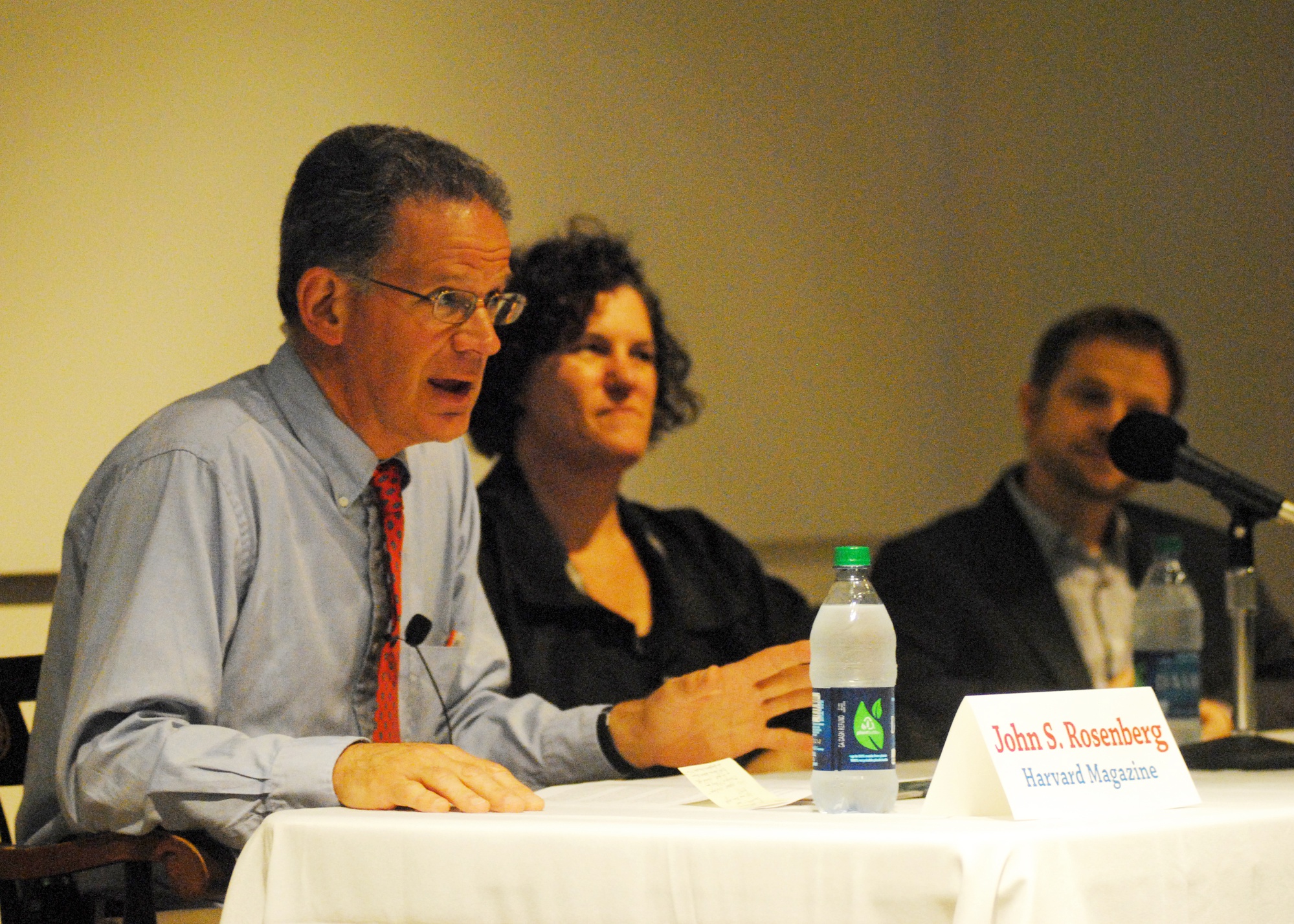
News
Harvard Quietly Resolves Anti-Palestinian Discrimination Complaint With Ed. Department

News
Following Dining Hall Crowds, Harvard College Won’t Say Whether It Tracked Wintersession Move-Ins

News
Harvard Outsources Program to Identify Descendants of Those Enslaved by University Affiliates, Lays Off Internal Staff

News
Harvard Medical School Cancels Class Session With Gazan Patients, Calling It One-Sided

News
Garber Privately Tells Faculty That Harvard Must Rethink Messaging After GOP Victory
Panelists Debate Higher Education Challenges and Online Courses as Solutions

Education advocates could not reach a consensus on whether online courses can solve rising inequality in higher education during a panel organized by the Harvard Union of Clerical and Technical Workers on Friday.
The panelists consisted of Susan M. Dynarski ’87, an education professor at the University of Michigan, and Jeffrey R. Young, a current editor and writer for The Chronicle of Higher Education and a current Nieman Foundation fellow. During the event, Dynarski and Young discussed the challenges facing higher education.
According to Dynarski, the differences in both college matriculation and retention rates between income brackets have risen significantly in the last few decades.
Throughout the panel, however, the discussion shifted from educational inequality more broadly to whether online education could offer a possible solution to this issue.
Young said there has been a trend in higher education to turn to massive open online courses as an alternative or supplement to the traditional classroom.
He said EdX, the online platform founded by MIT and Harvard that offers free online courses, was an example of an attempt to make world-class education available to all through technology.
However, Dynarski said online education courses alone could not transform higher education.
“The word ‘MOOCs’ is the flavor of the day, but it allows us to be distracted from the problem of educating kids,” Dynarski said, referring to the acronym for massive open online courses. “It is one more tool in the toolbox.”
Though Young said there is a risk of overemphasizing technology as the solution, he also said that online platforms still have a role in the future of higher education.
“I think what will end up sticking around is a hybrid model,” Young said. “But there is a risk in replacing automation for some students but not others.”
Amanda Haziz-Ginsberg, a 2012 graduate of the Harvard Divinity School and a staff assistant with campus services, said she thought the panel raised interesting questions about how technology and higher education interact.
“These questions are becoming increasingly important, giving the rising costs of college,” Haziz-Ginsberg said.
The panel was part of a fall series organized by HUCTW to commemorate the union’s 25th anniversary.
“For our 25th anniversary, we wanted to celebrate by providing a joint opportunity for the entire community to learn together and to talk about issues affecting our members—issues like the middle class, health, and higher education,” Emily Hankle, a HUCTW organizer, said.
Want to keep up with breaking news? Subscribe to our email newsletter.
